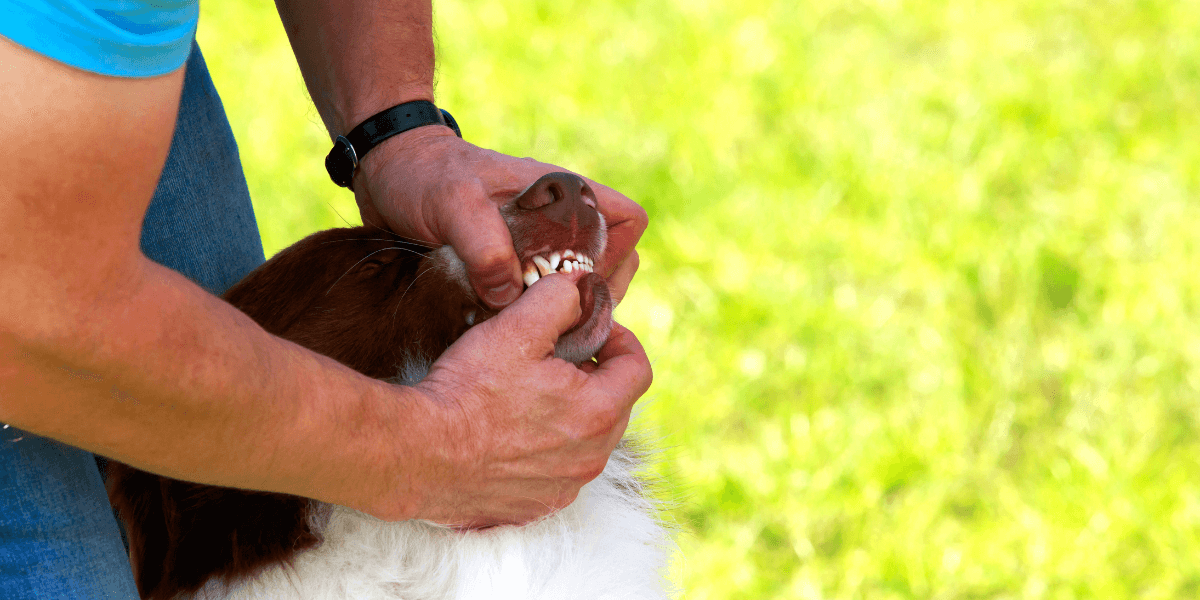Introduction
Border Collies are smart and agile, but here are key health concerns for Border Collies.
- Addressing these concerns is key to maintaining your Border Collie's well-being
- Early detection and preventive care can significantly improve their quality of life
- This guide will cover the top health concerns, offering advice on prevention and care
- Learn about symptoms to watch for and how to ensure your Border Collie stays healthy
- Proper care can extend their life and enhance their overall happiness
1. Hip Dysplasia

Hip dysplasia is a common genetic condition affecting Border Collies' hip joints.
- Genetics: Hip dysplasia often runs in families, so breeding practices matter
- Symptoms: Watch for limping, difficulty getting up, or reduced activity
- Diagnosis: A vet will perform X-rays to confirm the presence of dysplasia
- Treatment: Options include weight management, physical therapy, or surgery
- Prevention: Ensure responsible breeding and maintain a healthy weight
- Diet: A balanced diet supports joint health and overall fitness
- Exercise: Regular, moderate exercise helps maintain joint flexibility
2. Progressive Retinal Atrophy (PRA)

PRA is an inherited condition that leads to vision loss in Border Collies.
- Genetics: PRA is inherited, so check if your dog’s parents were tested
- Symptoms: Look for night blindness or difficulty seeing in low light
- Diagnosis: Eye exams by a veterinary ophthalmologist are essential
- Treatment: Unfortunately, there is no cure, but management strategies can help
- Prevention: Genetic testing before breeding can reduce the risk
- Adaptations: Provide a safe, predictable environment for your dog
- Support: Use cues and commands to help your dog navigate their surroundings
3. Epilepsy

Epilepsy causes seizures, which can be alarming for Border Collie owners.
- Symptoms: Seizures may include convulsions, disorientation, or drooling
- Diagnosis: A vet will perform tests to rule out other causes of seizures
- Treatment: Medications can help control and reduce the frequency of seizures
- Prevention: No known prevention, but early treatment can manage the condition
- Management: Keep a seizure diary to track the frequency and triggers
- Safety: Ensure your dog’s environment is safe during and after a seizure
- Support: Follow your vet’s recommendations for medication and care
4. Allergies

Health concerns for Border Collies include allergies causing itching and ear infections.
- Types: Allergies can be environmental, food-related, or due to parasites
- Symptoms: Watch for itching, redness, or digestive issues
- Diagnosis: Allergy testing can pinpoint specific triggers
- Treatment: Treatment includes avoiding allergens and using medication as needed
- Prevention: Regular grooming and a clean environment can reduce exposure
- Diet: Consider hypoallergenic diets if food allergies are suspected
- Management: Use flea control and avoid known environmental allergens
Learn about common health issues in Great Danes to better understand your Border Collie's well-being.
5. Collie Eye Anomaly (CEA)

CEA is a genetic eye condition affecting Border Collies and can lead to vision problems.
- Genetics: This is an inherited condition, so genetic testing is crucial
- Symptoms: Symptoms include abnormal eye shapes or vision problems
- Diagnosis: An ophthalmologist can diagnose CEA through eye exams
- Treatment: There is no cure, but management can help maintain vision
- Prevention: Genetic screening before breeding can help reduce risk
- Care: Regular eye check-ups are important to monitor the condition
- Adaptations: Provide a secure environment to help your dog navigate safely
6. Hypothyroidism

Hypothyroidism is a condition where the thyroid gland does not produce enough hormones
- Symptoms: Look for weight gain, lethargy, or skin issues
- Diagnosis: Blood tests are used to diagnose hypothyroidism
- Treatment: Treatment involves daily medication to manage hormone levels
- Prevention: Regular vet check-ups can help catch this condition early
- Diet: A balanced diet supports overall health and aids in managing weight
- Management: Regular monitoring of thyroid levels is necessary
- Exercise: Maintain a healthy exercise routine to support overall health
Discover the healthiest diet for German Shepherds to support your Border Collie's thyroid health.
7. Dental Issues

Dental issues are key health concerns for Border Collies and affect their well-being.
- Types: Issues include tartar buildup, gum disease, and tooth decay
- Symptoms: Watch for bad breath, difficulty eating, or gum inflammation
- Diagnosis: Regular dental check-ups are essential for early detection
- Treatment: Professional cleanings and dental care can resolve many issues
- Prevention: Brush your dog's teeth regularly and provide dental chews
- Diet: A diet that promotes dental health can help reduce plaque buildup
- Care: Regular dental check-ups are crucial for maintaining oral health
8. Obesity

Obesity in Border Collies is rising, leading to various serious health problems.
- Causes: Overfeeding and lack of exercise are common contributors to obesity
- Symptoms: Signs include excessive weight gain and difficulty in physical activities
- Diagnosis: A vet can assess body condition and recommend weight management strategies
- Treatment: Weight loss involves a controlled diet and increased exercise
- Prevention: Monitor food intake and ensure regular physical activity
- Diet: Choose a balanced, calorie-controlled diet to support weight management
- Exercise: Regular exercise is crucial for maintaining a healthy weight
Explore top nutrition tips for Great Danes to help manage your Border Collie's weight effectively.
9. Ear Infections

Ear infections are major health concerns for Border Collies, causing discomfort.
- Causes: Ear infections can result from allergies, moisture, or parasites
- Symptoms: Look for shaking of the head, scratching, or foul-smelling discharge
- Diagnosis: A vet will examine the ears and may perform tests to identify the cause
- Treatment: Usually involves cleaning the ears and using prescribed medications
- Prevention: Keep ears dry and clean to minimize the risk of infections
- Monitoring: Regularly check your dog’s ears for signs of infection
- Care: Consult your vet for persistent or severe ear issues
10. Autoimmune Disorders

Autoimmune disorders occur when the immune system mistakenly attacks the body’s tissues.
- Types: Conditions include autoimmune hemolytic anemia and lupus
- Symptoms: Symptoms vary but may include skin lesions, lethargy, or joint pain
- Diagnosis: Diagnosis involves blood tests and other diagnostic procedures
- Treatment: Treatment may include immunosuppressive medications and supportive care
- Prevention: No specific prevention, but early diagnosis can improve management
- Monitoring: Regular vet visits are essential to monitor the condition
- Support: Provide supportive care and follow veterinary advice for managing symptoms
FAQs
1. What are the common signs of hip dysplasia in Border Collies?
- Limping or difficulty getting up are key health concerns for Border Collies
2. How can I manage my Border Collie’s epilepsy?
- Follow medication guidelines and ensure a safe environment
3. What can I do to prevent allergies in my Border Collie?
- Regular grooming and a balanced diet can help reduce allergy risks
4. How often should I have my Border Collie’s teeth checked?
- Schedule dental check-ups regularly and maintain at-home care
5. What is Collie's Eye Anomaly and how is it treated?
- CEA is a genetic condition with no cure but can be managed with regular check-ups
6. What are the signs of hypothyroidism in Border Collies?
- Weight gain and increased tiredness are common indicators
7. How can I prevent dental problems in my Border Collie?
- Brush teeth regularly and schedule dental check-ups to prevent issues
Conclusion
- Regular veterinary check-ups are vital to catch and manage health concerns early
- Adhering to preventive care guidelines can improve your Border Collie's quality of life
- Keep an eye out for symptoms and seek timely treatment to address health issues
- Responsible breeding practices and a healthy lifestyle contribute to overall well-being
- Stay informed about health concerns for Border Collies and ensure proactive care.
- Share this info with Border Collie owners to help promote better health practices
Like and share this guide on Border Collie health to help other dog owners!
References
For more info on the Top 10 Health Concerns for Border Collies, check out:



